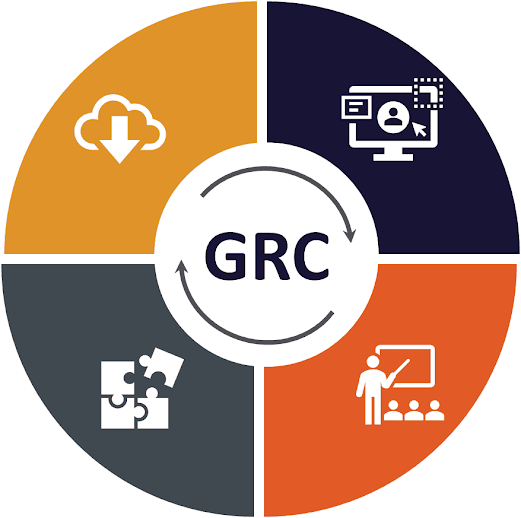GRC Tools: The Key to Avoiding Legal Troubles in Today's Business Landscape
GRC Tools: The Key to Avoiding Legal Troubles in Today's Business Landscape
GRC tools (Governance, Risk, and Compliance) have become an essential part of modern businesses, particularly in the wake of increased regulatory scrutiny and the growing need for transparency and accountability. GRC tools refer to a set of software solutions designed to help organizations manage their GRC-related activities more effectively. These tools provide a range of features such as legal updates, databases, reports, and alerts that enable organizations to comply with regulations, identify and manage risks, and ensure good governance practices. GRC tools are typically segregated into risk and compliance products, with compliance products including features such as legal updates and databases that help KMPS (Key Management Personnel) avoid non-compliance that could lead to legal trouble. In this blog, we'll explore the importance of GRC tools and how they can help companies maintain a culture of timely, transparent, and accountable compliance.
Companies Act has greater focus on compliance and governance in general
The Companies Act, 2013 is a major piece of legislation that governs the operations of companies in India. The Act imposes several obligations on companies to ensure compliance with various regulations related to corporate governance, financial reporting, and disclosure, among others. With the introduction of the Companies Act, 2013, the regulatory framework for companies in India has become more stringent, and compliance requirements have become more complex.
Moreover, in recent years, there has been a significant increase in the number and complexity of regulations related to data privacy, anti-corruption, and environmental and social responsibility. Non-compliance with these regulations can lead to significant legal, financial, and reputational consequences.
To ensure compliance with these regulations, companies are increasingly adopting GRC tools, which can help them manage their compliance and governance activities more effectively. These tools provide features such as legal updates, databases, reports, and alerts, among others, that can help companies stay up-to-date with the latest regulatory developments and identify and manage risks associated with non-compliance.
KMPS can face imprisonment for non-compliance
it's important to note that the Companies Act, 2013 holds KMPs accountable for ensuring compliance with various regulatory requirements. This includes the preparation and filing of financial statements, ensuring accuracy and completeness of disclosures, and ensuring compliance with corporate governance norms, among others.
If KMPs fail to fulfill their obligations or are found to be involved in any non-compliance, they can face severe legal consequences, including imprisonment, fines, and even disqualification from holding directorship positions. The Act also imposes civil liabilities on KMPs, and they can be held responsible for any losses or damages suffered by the company due to their actions or inactions.
Given the severe consequences of non-compliance, KMPs are increasingly adopting GRC tools to manage their compliance-related activities more effectively. These tools can help KMPs stay up-to-date with regulatory developments, identify and manage risks, and ensure timely and accurate reporting, among other benefits.
This culture of timely, transparent, and accountable compliance will rely on GRC tools and technology as its backbone
In today's complex regulatory landscape, companies need to comply with multiple regulations, laws, and standards across various jurisdictions. Compliance can be a challenging task, especially for companies that operate across multiple locations and industries. Furthermore, non-compliance can lead to significant legal, financial, and reputational risks.
To mitigate these risks and ensure timely and accurate compliance, companies are increasingly adopting GRC tools and technology. These tools can help companies automate and streamline their compliance-related activities, including risk assessments, policy management, incident management, and regulatory reporting.
GRC tools and technology can also help companies improve transparency and accountability in their compliance-related activities. By providing real-time visibility into compliance-related activities, GRC tools can help companies identify and address compliance gaps and risks quickly. Additionally, GRC tools can help companies track and report on compliance-related activities, providing regulators and stakeholders with greater transparency and assurance that the company is meeting its compliance obligations.
Overall, GRC tools and technology are critical enablers of a culture of timely, transparent, and accountable compliance. By automating and streamlining compliance-related activities, improving transparency, and reducing risks, GRC tools can help companies meet their compliance obligations more effectively and efficiently.
Features of a Grc tools
As discussed earlier, GRC tools and technology have become increasingly important for companies to manage their compliance-related activities effectively. One of the key features of GRC tools is that they are often segregated into different products, with risk and compliance being two distinct areas of focus.
In the compliance product segment, GRC tools offer a range of features to help companies manage their compliance obligations effectively. These features include legal updates, databases, reports, and alerts.
Legal updates are critical for companies to stay up-to-date with the latest changes in regulatory requirements and laws. GRC tools can provide real-time updates on new regulations and requirements, helping companies stay ahead of the curve and avoid any non-compliance risks.
The database is another key feature of GRC tools. It allows companies to store and manage compliance-related data in a centralized location, making it easier to access and analyze. With a comprehensive compliance database, companies can quickly identify compliance gaps and take corrective actions.
Reports and alerts are also essential features of compliance-focused GRC tools. Reports can provide insights into compliance-related activities, highlighting areas of strength and weakness. Alerts can notify compliance teams of any potential risks or compliance violations, allowing them to take proactive measures to mitigate risks.
Overall, compliance-focused GRC tools offer a range of features to help companies manage their compliance obligations effectively. From legal updates to databases, reports, and alerts, these tools can provide the necessary capabilities to achieve timely, transparent, and accountable compliance.



Comments
Post a Comment